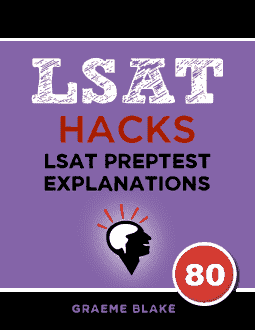QUESTION TEXT: A recent archaeological find in what was once the…
QUESTION TYPE: Flawed Reasoning
CONCLUSION: The recent large tomb must have been the tomb of Alexander the Great.
REASONING: Alexander the Great was the greatest Macedonian in history, and so he would have had the largest tomb.
ANALYSIS: If you're like me, your first reaction might have been “no way, maybe the biggest tomb belonged to some other king!”. That's a sensible reaction, but it doesn't help. On the LSAT, you should try to avoid contradicting premises, and here the argument gives as facts that:
- Alexander was the greatest king
- He therefore would have had the biggest tomb
So, to disprove the conclusion, you need some other element of logic. And here it is: perhaps we haven't yet found the biggest tomb. In history, much is undiscovered. It's possible that the largest Macedonian tomb (Alexander's) remains undiscovered. The tomb we found could just be the biggest that we found, and not the biggest overall.
That tomb, Alexander's tomb, could still be buried beneath the earth.
___________
- The argument didn't say this. It merely said that Alexander's conquests were the cause of his greatness. But there might be other reasons someone could be great.
- CORRECT. If this isn't true, then maybe Alexander's tomb is still hidden. It's possible that we haven't yet found the largest Macedonian tomb.
- Tombs in other regions don't necessarily matter. We're talking about Macedonians. Why would we care about Chinese or Mayan tombs?
You may have picked this because you though “Aha, Alexander had a large empire. Maybe his tomb was in Asia!”. Too clever by half. A person can have more than one tomb, and it's likely that Macedonians built him a tomb in his own country. Regardless of whether he had other tombs elsewhere. In any case, the passage clearly says that “and so [Alexander] would have had the largest tomb [in Macedonia]”. There might be a larger tomb to Alexander elsewhere, but what's important is this tomb in Macedonia. - I'm not sure the collapse is that significant. According to the argument, Alexander is nonetheless the greatest Macedonian ever. He might have been greater had his empire survived, but the argument is clear that he was nonetheless the greatest. There's no need for a lengthy evaluation of the significance of the collapse: LSAT questions don't have space for that.
- This answer is a reasonable assumption, not a flaw. Archaeologists are good at their work! On the LSAT, you're supposed to give deference to qualified experts. So if archaeologists say they've found the largest tomb so far, then it is the largest tomb they've found so far.
Recap: The question begins with “A recent archaeological find in what was”. It is a Flawed Reasoning question. To practice more Flawed Reasoning questions, have a look at the LSAT Questions by Type page.


I don’t think this is a flawed reasoning question. It is a most vulnerable question.
That’s another form of wording the stem for flaw questions. I haven’t found a difference in approach between the two stems.
Note: This is an old comment but I wanted to clarify the point.